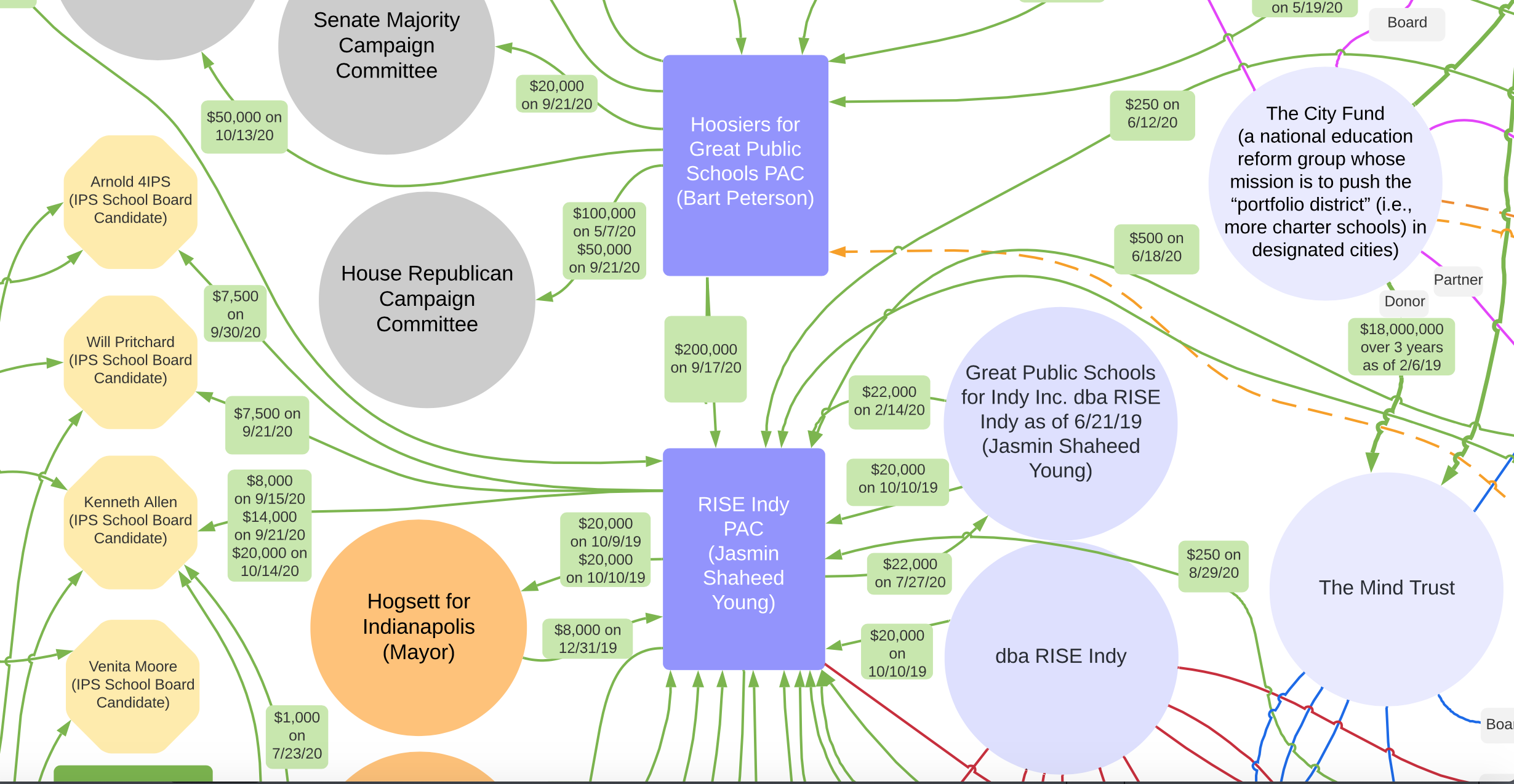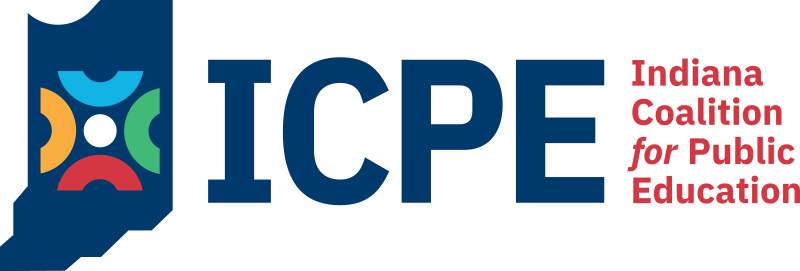Out-of-state education reform money floods into Indiana communities

RISE Indy PAC Purpose:
“Electing candidates for Indianapolis School Board, City Council, and the Indiana General Assembly who have a kids first agenda in education policy.”
Hoosiers for Great Public Schools PAC Purpose:
“We support organizations working to increase educational opportunities for all students. Focus will be on education issues.”
What does it mean to put “kids first?” Children need stability, schools with experienced, educated teachers, and resources. These needs run contrary to a model of “school choice” in which schools open and close at the whim of the “market.” What about the purpose of increasing “educational opportunities?” How does this serve children and communities? Creating niche schools is an interesting business venture for entrepreneurs, and it may appeal to many parents’ inclination to want the “perfect fit” for their own child, but does it create consistent, universal access to schools for all children?
These are the questions we must ask of our elected officials. But they are also the questions we must ask of the organizations and individuals who fund these officials. Why are wealthy individuals from out of state so interested in the well-being of the children of Indianapolis and Indiana? Why are these experiments in education performed disproportionately on children in communities with more poverty and children of color? All children not only deserve equal “access” to a high quality public education, but a commitment to provide a high quality public education for every child. Getting to enroll in a lottery is not the same thing as getting to enroll (and stay) in a high quality public school.
When certain campaign finance details from the IPS School Board race became public last week, we did a little background digging to learn more. To illustrate what is going on based on publicly-available information, some of our volunteers made a diagram. The diagram is by no means complete, but it does give us a visual of the connections instrumental to the education debate in Indiana. We recognize that the diagram is unwieldy and would be best viewed on a computer screen or fully printed out.
The focus of the diagram is mostly on the RISE Indy PAC and the news on their campaign finance report that they received $559K. Is this how much it costs to buy a school board? To buy legislators? They still have $316K left as of 10/9/20.
As we have seen in many urban centers across the country, education “reformers” are spending big bucks to privatize1 our schools by pushing the “portfolio model”2 of education. They use money to influence legislative, city council, mayoral and school board outcomes.
Billionaires are putting money into local school board races via PACs (political action committees) – $100K here; $200K there. These are drops in the buckets of their fortunes. This is not a new phenomenon, but it is very important and growing and could have a catastrophic effect on public schools for many years to come. It is also important to note that this effort crosses party lines and that the work of redirecting public tax dollars into private hands through this privatization effort is happening in cities all across the country.
Money flooding into Indiana communities from out-of-state people, who are not personally affected by our elections’ results, makes one wonder who is truly looking out for the children. “The problem is not that dark money will flood every state and local election or even most. Rather, it’s that dark money is most likely to turn up where the stakes are particularly valuable, in amounts that could make all the difference in persuading voters”3 to vote away their right to democratically elected officials. As we continue to allow billionaire interests to influence our elections under the guise of local organizations, we chip away at our children’s ability to recognize the genius of democracy – freedom to dissent, freedom to criticize, freedom to protest, freedom to publish, freedom to join together in common cause, and courage to hold elected officials accountable. The stakes are high. Our democracy is at stake. As one local Indiana advocate puts it, “Just like a budget reflects your values, your funders reflect your agenda.”
Sources
- Privatization is the process by which public funds (funds that belong in the public domain) are being taken away and moved into private hands.
-
https://www.crpe.org/research/portfolio-strategy
“The basic idea is that school boards should treat their schools as if they were a stock portfolio. Some will be public schools run by the district; others will be privately managed. If a school gets low scores, close it and open a new one. If a school is not performing well, turn it over to private management. Buy and sell schools as you would buy and sell stocks in a portfolio,” https://dianeravitch.net/2017/12/10/the-portfolio-model-of-schools-the-trojan-horse-of-privatization/
- Secret Spending in the States, report by the Brennan Center for Justice https://www.brennancenter.org/sites/default/files/analysis/Secret_Spending_in_the_States.pdf
